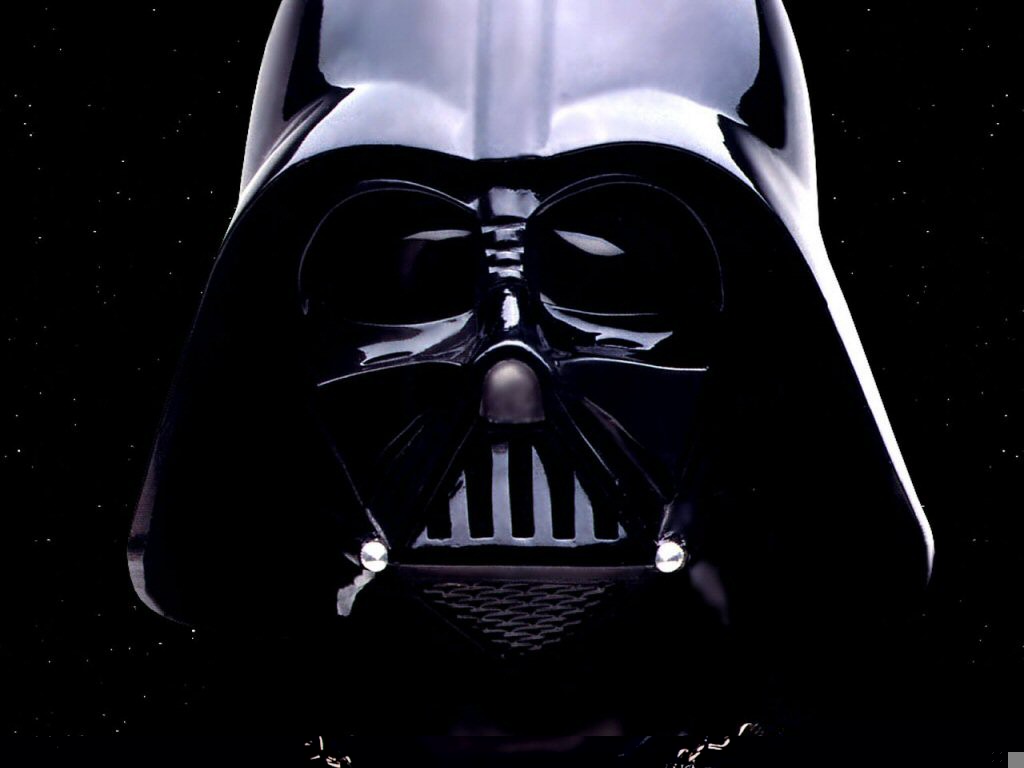Unlike Voldemort who showed callousness and evil tendencies early on, Annikin seemed to feel too much. He reacted with intensity, and let his anger boil up, he loved Padme too passionately. He had too much of the force... or at least these are some of the responses I received most frequently when asking around.
So aside from my friend who claimed that the reason Annikin turned dark was because he no longer had a mentor he respected after showing up his teacher so many times* (a rational approach), most seemed to concur that it was a combination of rage, arrogance, passion...ultimately a deeply emotional response.
These highly emotional good-turned-bad villains intrigue me more than all other breeds, as they allow for the most layering in writing them.
While sociopathic villains may do or say the things our inner dark desires would like to do (punch out the jerk who cut you off, etc.) thereby allowing the reader to feel a vicarious liberating rush from the constraints of good society, and they can up the terror quotient immensely as they do not have any empathetic barriers to stop them, they simply aren't very relatable.
On the other hand, the strength of a good-turned-bad emotional villain is that we can see our own struggles between good and bad. If we are willing to acknowledge it, we can see as much of ourselves in the villain as we do the protagonist, and that may have a moralizing effect. Or at least it keeps the tension high when our characters are so round we see the fullness of our own strengths and weaknesses in them.
Personally, I think that Lucas was pretty masterful in the way he allowed us to feel the wrath/fear of Darth first and then slowly teased out the backstory root of his bitterness. Dostoevsky, another genius of the dark, used an alternate route in Crime and Punishment by allowing us directly into the mind of Raskolnikov first, heaping on us familiarity, intimacy, etc. for 50-100 pages before we see that he is, in fact, a murderer. Both techniques are strong for introducing this kind of character.
Aside from the fun of studying the technique involved in teasing out information, another perk of the good-turned-bad villain is the psychoanalysis you can do on friends when you ask why a villain turned.
While considering this post, I'm reading The Moral Molecule by Paul Zak (another great work to read when studying villainy, or just because it's awesome), so my immediate response is to think that perhaps Darth fully turns evil once he is removed from Padme who gives him his rushes of oxytocin (the moral molecule). My brother quickly countered by saying that he blames the rush of oxytocin Annikin must've received when the two lovingly celebrate her pregnancy after he brutally murders thereby associating an oxytocin rush with murder. I doubt Dr. Zak would concur with either stretches of interpretation, but it sure is fun to question.
And that is what I love most about a good-turned-bad villain: the sentiment Anais Nin (or the Talmud depending on which source you're taking) sums up best when she/it says "we see things not as they are, but as we are." And today this rosharch test of villainy thinks I'm a science geek (ha ha). What does it say about you? Why do you think Vader turned????
And on a lighter note, check out "The Star Wars That I Used to Know", a parody of Gotye that 's pretty fantastic.
*Full text of friend's comment taken from Facebook chat with his nameless permission (can you tell that he studied religion at Harvard?):
The young need a teacher.
But what happens when a precocious student realizes he has more ability than his teacher?
What rationale does such a student have for continuing under the tutelage? Annikan struggled with this question and began to lack confidence in the guidance from one he could best in so many ways. And then, he unwisely felt he had no teacher at all. And allowed the immature yearnings of his burgeoning adolescence to school him, which of course was no school at all. Also, It seems that Annikan saw wisdom and caution only as necessary tools of the powerless, or at least the less powerful. One with power so far above the rest can easily bring about his purposes with little planning and without concern for opposition. But as he took little thought about his external manipulations, he took even less thought about their internal impact. He effected his desires externally without awareness of their internal impact. Obstacles give pause for reflection. But his obstacles were few. And so, unlike the rest of us, he shaped his environment before circumstances helped him to reshape his desires. Adolescent desire would shape the world in unsightly ways, but such desire changes as we try. In the end, our desires changes before we make the world match them.
Unfortunately, it was not so for Annikan.





Very interesting post. Thanks to share. Poker Day is the premier designer of unique poker t-shirts and accessories. The global love of poker, our designs, and being poker pro endorsed are what keep us going. See why players and enthusiast are often in our tees, accessories, and hoodie goodies. https://pokerday.us/
ReplyDelete